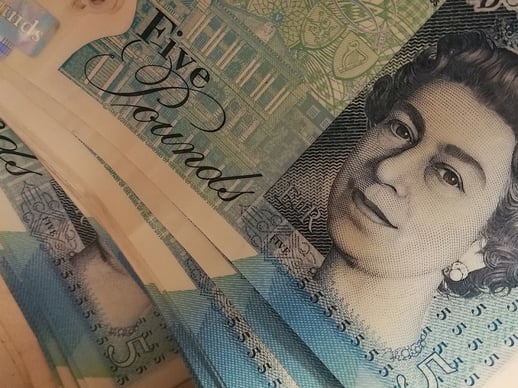What Are The Latest Changes To VAT For 2020-2021? A Guide For Small British Businesses

If you run a small business or handle the accounts for one anywhere in the UK, you'll need to keep up to date with all the latest changes the government makes to Value Added Taxation (VAT). Any British business with an annual turnover above the threshold of £85,000.00 must register (by law) to pay VAT on their taxable profits from selling VAT-rated products and services.
VAT may also stack with other vital taxes on consumer products such as alcohol and tobacco duty.
The general VAT rate for standard VAT items for the tax year 2020-2021 will be 20% of each transaction. VAT-taxable products are any considered to be 'non-essential' - such as entertainment, processed luxury food and drink, and decorative items. Vital items, such as staple fruits and vegetables, are VAT-exempt and untaxed (at 0%). A reduced rate of 5% is also available for some items that are 'sometimes' vital (such as fuel). These rates remain unchanged from the March 2011 budget.
No Big Changes Or Great Changes To Come?
The March 2020 budget was fundamentally cautious in how it approached VAT. The red briefcase contained some small yet important changes to the way VAT will be levied during Q2 2020 - Q2 2021 as well as some housekeeping 'like-for-like' legislation to transfer existing EU tax law into British jurisdiction post-Brexit.
However, this budget was delivered just a few days before the start of the lockdown triggered by the COVID-19 (Coronavirus) pandemic. What followed was an emergency, cross-party budget that approved the single greatest amount of quantitative easing undertaken by the Bank of England since 1945. While the minor changes outlined on 11th March should stick, further emergency budgets that may alter VAT should be expected.
As well as the fallout from the virus, these tweaks could be a game-changer for small businesses...
A Vast Deferrence
The biggest change to VAT made in Spring 2020 to cope with the UK COVID-19 shutdown was the introduction of the nationwide Deferred Payments Scheme.
If your business (of any size) was due to make a VAT payment before 30th June 2020 for the tax year 2019-2020, you may ask HMRC to defer the payment to any date before 31st March 2021. No fines or surcharges will be levied for late returns. You do not need to contact HMRC directly - all outstanding tax returns have had the new deadline applied.
You may still pay your VAT 'on-time' if you wish. Tax returns are still being accepted by HMRC and processed in the usual way during the lockdown. More information (subject to change) is available at GOV.UK.
The End Of The 'Tampon Tax'
After years of campaigning, the reduced VAT on female sanitary products (5%) was cancelled entirely in the 2020 budget for England, Northern Ireland, and Wales. This means that vital tampons, pads, and applicators will be much cheaper, as they will be treated the same way by HMRC as food and medicine.
Cheaper Digital Publications
VAT is to be abolished entirely (from 20%) on any digital purchases of books, magazines, journals, and newspapers. This measure brings the electronic, digital marketplace for the written word into sync with pulp and ink versions of the same content, which have long been VAT-exempt.
Reverse VAT Charges for Construction Contractors
To crack down on tax evasion in the construction sector, contractors are now held accountable for any VAT incurred by their subcontractors while supplying materials, labour, or general services. This centralises VAT payments to make constructors more accountable and transparent to HMRC.
Smallholding and Small Farms Subsidies
As part of the UK's exit from the EU, farmers involved in crop production, stock farming, forestry, or running fisheries may apply to join the Agricultural Flat Rate Scheme (AFRS) if their annual turnover is £150,000.00 or less.
The AFRS lowers the rate of tax payable to HMRC on flexible earnings during growth in agricultural sectors vital to public wellbeing. AFRS duties are paid instead of normal VAT. The revised AFRS scheme will be available from 2021 (pending emergency changes). AFRS Farms will be transferred onto the regular VAT scheme once their yearly turnover reaches £230,000.00 or more.
Cloud Accounting From David Howard
Do you need a smarter, digital way to keep track of your VAT liabilities? David Howard specialises in remote bookkeeping, auditing, and tax planning.
Visit our website for more on what we could do for your accounts.
Image source: Pixabay
Posts by Topic
- Accounting Services (58)
- Tax Services (57)
- Tax (50)
- Smart Accounting Services (34)
- Tax Return (29)
- Corporation Tax (26)
- COVID-19 (24)
- sme accounting (24)
- Clients (19)
- Switching Accountants (16)
- VAT (15)
- Making Tax Digital (13)
- News (13)
- Xero (13)
- Dividend Tax (12)
- bookkeeping (12)
- Payroll (10)
- Cloud Software (9)
- Capital Gains Tax (6)
- Inheritance Tax (3)
- Savings (3)
- Benefits In Kind (Employee Benefits) (2)
- Case Studies (2)
- Stamp Duty (2)
- Trust (2)
- Trust Account (2)
- GDPR (1)
- Insider (1)
- Lifetime ISA (1)
- Retirement Savings (1)
- Wear & Tear Allowance (1)
